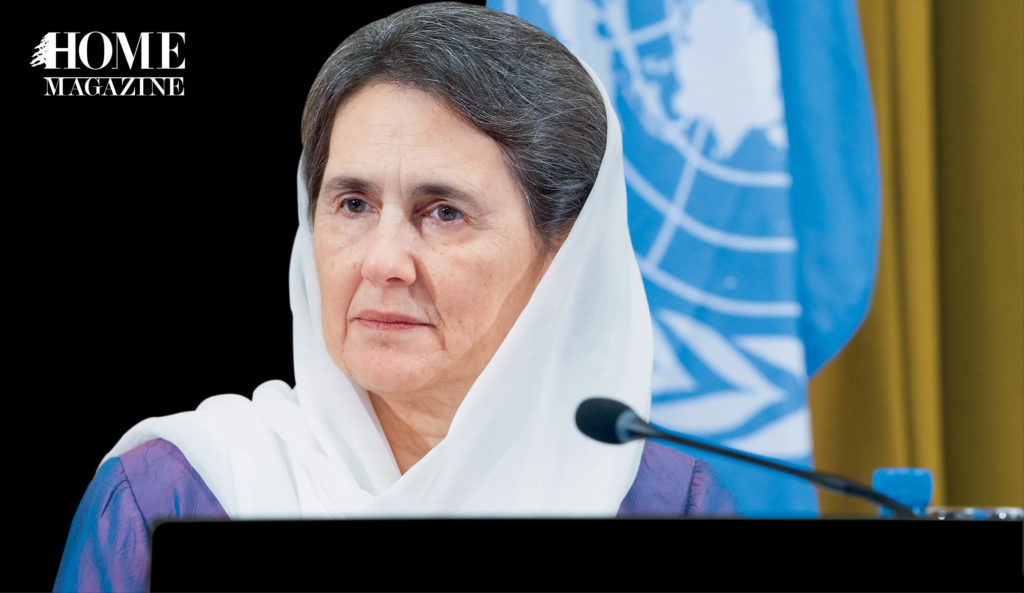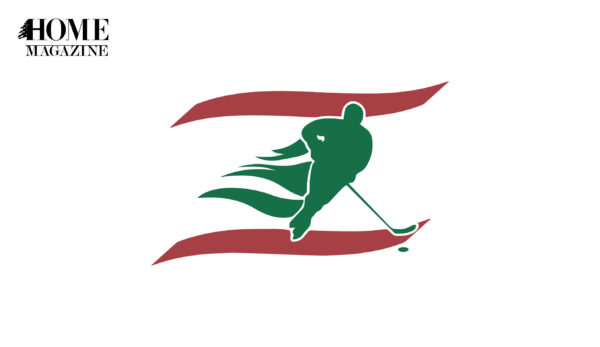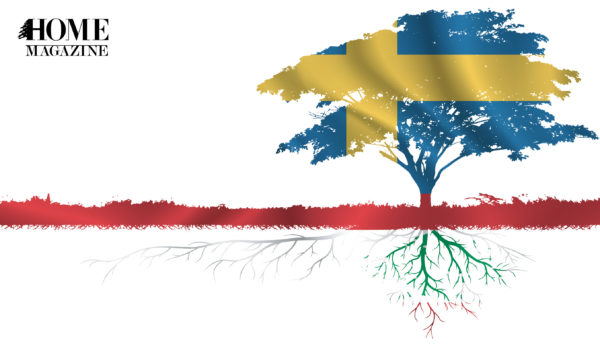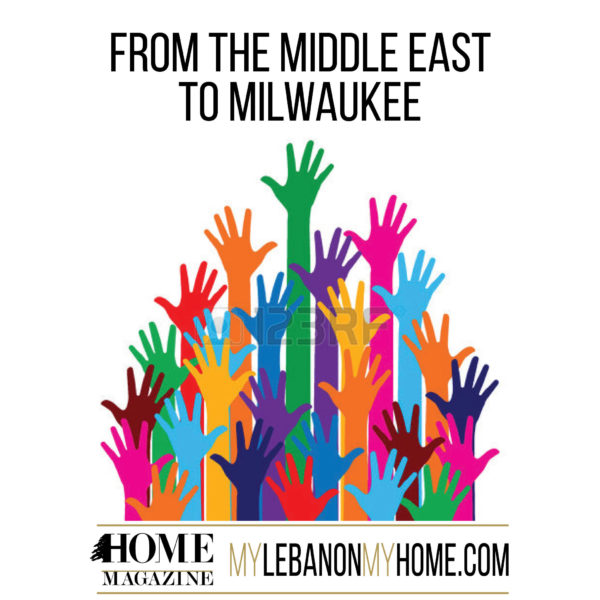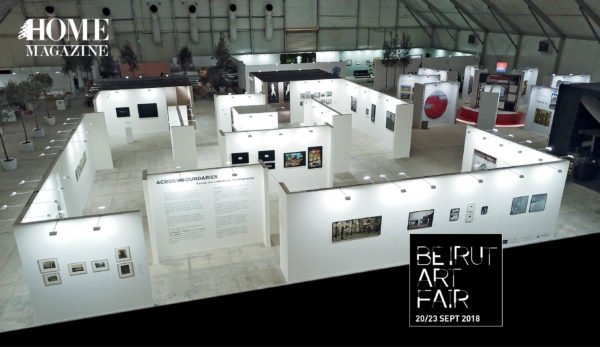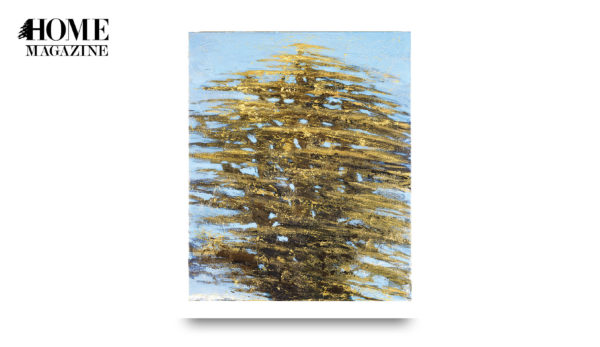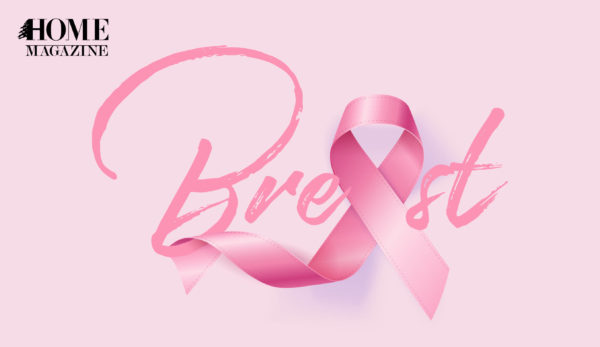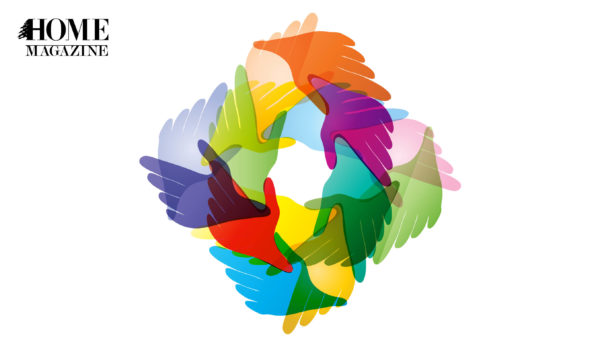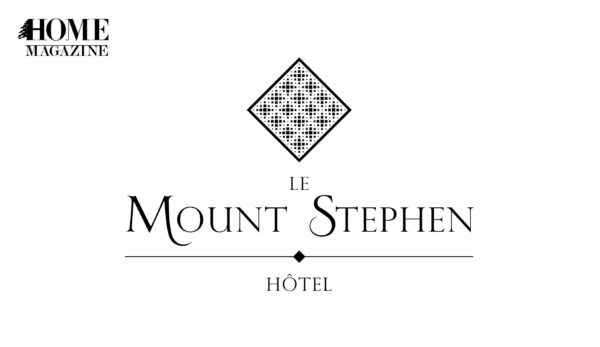At the Geneva Conference on Afghanistan,November 2018 – Photo by Violaine Martin / UN Photo
Interviewed by: Patricia Bitar Cherfan, Editor-in-Chief
Her Excellency, Lebanese-born First Lady of Afghanistan Rula Ghani reflects upon roots, family, academia, and cultural activism. With poise, serenity and sincerity, the multilingual Francophone—fluent in Dari and Arabic, too— discussed the role of women within today’s society and recounted her rich journey, from growing up in Lebanon and studying at Université Saint-Joseph (USJ), Sciences Po Paris and Columbia University, to meeting her husband at the American University of Beirut (AUB) and moving to Afghanistan.
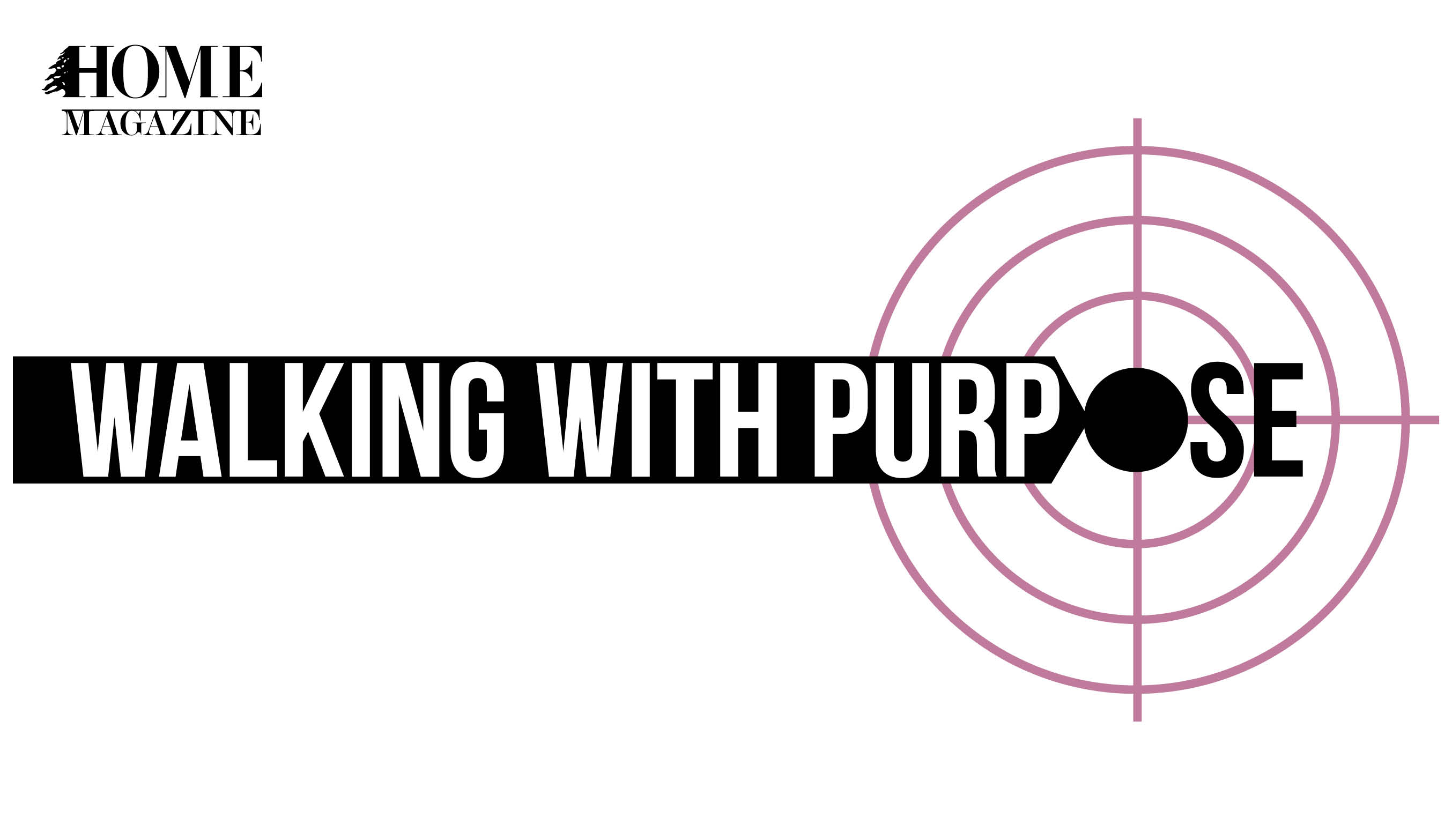
Reflecting on her Roots: Looking Back at Family Life in Lebanon
What was your Lebanese upbringing like? Tell us about your early years with your parents.
I was born in 1948, during Lebanon’s golden era, when the Lebanese people were busy establishing their nation. We had achieved independence in 1943, so my childhood and adolescence witnessed an important time of growth.
My father studied agriculture in France and then, in true entrepreneurial spirit, returned to Lebanon to start an agricultural business called Comptoir Agricole du Levant, which my brother continues to run today. As a family, our dinner table discussions focused on improving business practices: irrigation systems, seed diversities, fertilization methods and such. These discussions thoroughly shaped my understanding of the agricultural economy of Lebanon.
Public service was also a basis of my family life—it was always very important. My father was involved in many charities, especially with l’Abbé Pierre (the renowned French priest and deputy who frequently visited Lebanon to help the poor and HOMEless). My father belonged to the generation of educated Lebanese who envisioned a greatly successful Lebanon. He had friends all over, in all communities. This allowed me and my brother to grow up in an environment in which we regularly interacted with members of other religious communities, an experience I value dearly.
My mother was a terrific woman: very lively, very witty and an excellent storyteller. She loved to entertain people and beautify our HOME. We would joke and tease her: “You turned the house into a museum!” She was also very educated for her generation. Before getting married, she had studied law and learned how to drive. She passed away in February 2014. For some time after that, I did not return to Lebanon.
When did you leave Lebanon and how closely do you follow the country’s current events?
I first left Lebanon in 12th grade (Terminale) because I wanted to study mathematics (Mathélème), which at that time was not a popular pathway for girls in Lebanon. I was sent to a nun’s school in Paris and then began my pursuit of a higher education. It was when I returned to Lebanon for a master’s degree at AUB that I met my husband. We married in March of 1975 and departed for Afghanistan, but we have since visited Lebanon with our children. It was important to me to bring our children to Lebanon, to foster their connection with the family and the country, although I was careful not to force it upon them. Luckily, they enjoy and appreciate Lebanon.
I must say I do not follow news in Lebanon very closely. As Gibran Khalil Gibran stated, “Your Lebanon is a political riddle that the years are trying to solve. My Lebanon is a range of majestic mountains that reach out to the deep blue of the sky.” This is a fair reflection of my own perspective: it is difficult to follow and understand the ever-changing complexities of Lebanese current affairs. Nevertheless, I am very interested in my HOMEland and will continue to visit.
Do you find your Lebanese DNA to be advantageous?
Tremendously. We Lebanese are very resourceful. When we set out to do something, you can consider it done. I’ve been brought up to always tell the truth and to be attentive to the needs of those around me. I don’t know if it’s a Lebanese gene, but most Lebanese share these values. We are open people, and open to helping others.
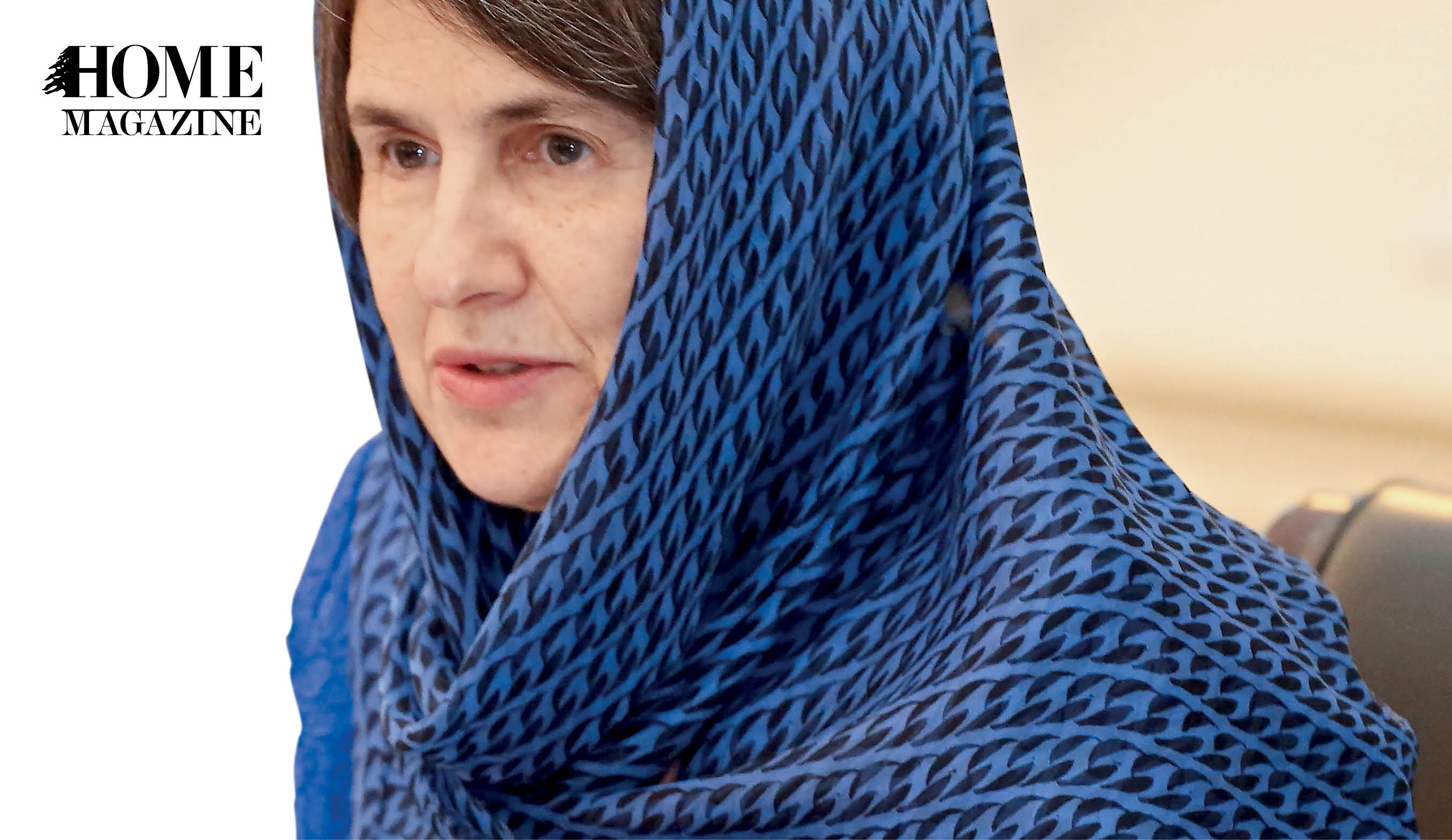 Photo by Office of the First Lady
Photo by Office of the First Lady
If you were to be more involved in Lebanon, in what areas would you most want to contribute to?
Given my experience in recent years, I would like to work on bringing people together to live more harmoniously. It is so important to move from the wartime mentality of violence to a mentality of peace. This is what I do in Afghanistan: I help people to develop positive attitudes to life and courageous ways of dealing with their problems. I can be considered a cheerleader of sorts. I try and guide people to be more aware of their surroundings, to be self-starters who can embrace their talents and pursue their goals. Helping people to identify their problems is important, but enabling them to identify their own solutions is even more important. I have a lot of faith that people have the solutions they need within themselves.
We must go back to being human with each other, to taking the time to get to know our neighbors and the people around us. When we interact with others, listen to what they have to say, and walk in their shoes to understand their point of view, this mutual understanding transforms peace-building into nation-building. So many issues can be avoided if we simply take the time to look at the person in front of us as a fellow human being on the shared journey through life.
Lebanon and Afghanistan: Dissimilar Demographics with Similar Traditions
Afghanistan is 62 times the size of Lebanon. Considering this difference, how do you think the two countries compare?
In terms of comparison, Afghanistan’s capital Kabul has a population of 6 million people, which is comparable to the whole of Lebanon. So yes, Afghanistan is a much larger country, but the issues are very much the same. Both countries have great ethnic, linguistic and religious diversity which creates a constant change in demographic choreography. When I arrived in 1975, Afghanistan very much reminded me of the stories my grandmother would tell me about her childhood in Lebanon. During the 1970s Afghanistan was not as developed as Lebanon, but it had comparable cultural traditions.
The two countries also share similar understandings of social etiquette. Interacting with Afghan people comes naturally to me, thanks to my Lebanese background. Both share similar customs such as showing respect for elders and family relations. I’ll tell you a story. I had just gotten married when a family came to visit us: a mother and her son, along with his German wife and their little boy. As I was newly married, the German girl took me aside and asked me: “How do you manage? I can’t seem to be able to interact with my mother-in-law.” I asked her what the problem was, and she replied: “For example, when we sit at the table, she keeps offering me food, but when I politely refuse, she keeps offering it again and again!” She didn’t understand the cultural context and thought her mother-in-law was trying to annoy her. I explained to the girl that she had the wrong impression: her mother-in-law was trying to show her love and affection.
Similarly, Lebanon and Afghanistan have a mutually understood code of communication with respect to the elderly. The same courteous preludes to our conversations. It’s something in the way we live and the way we feel about people.
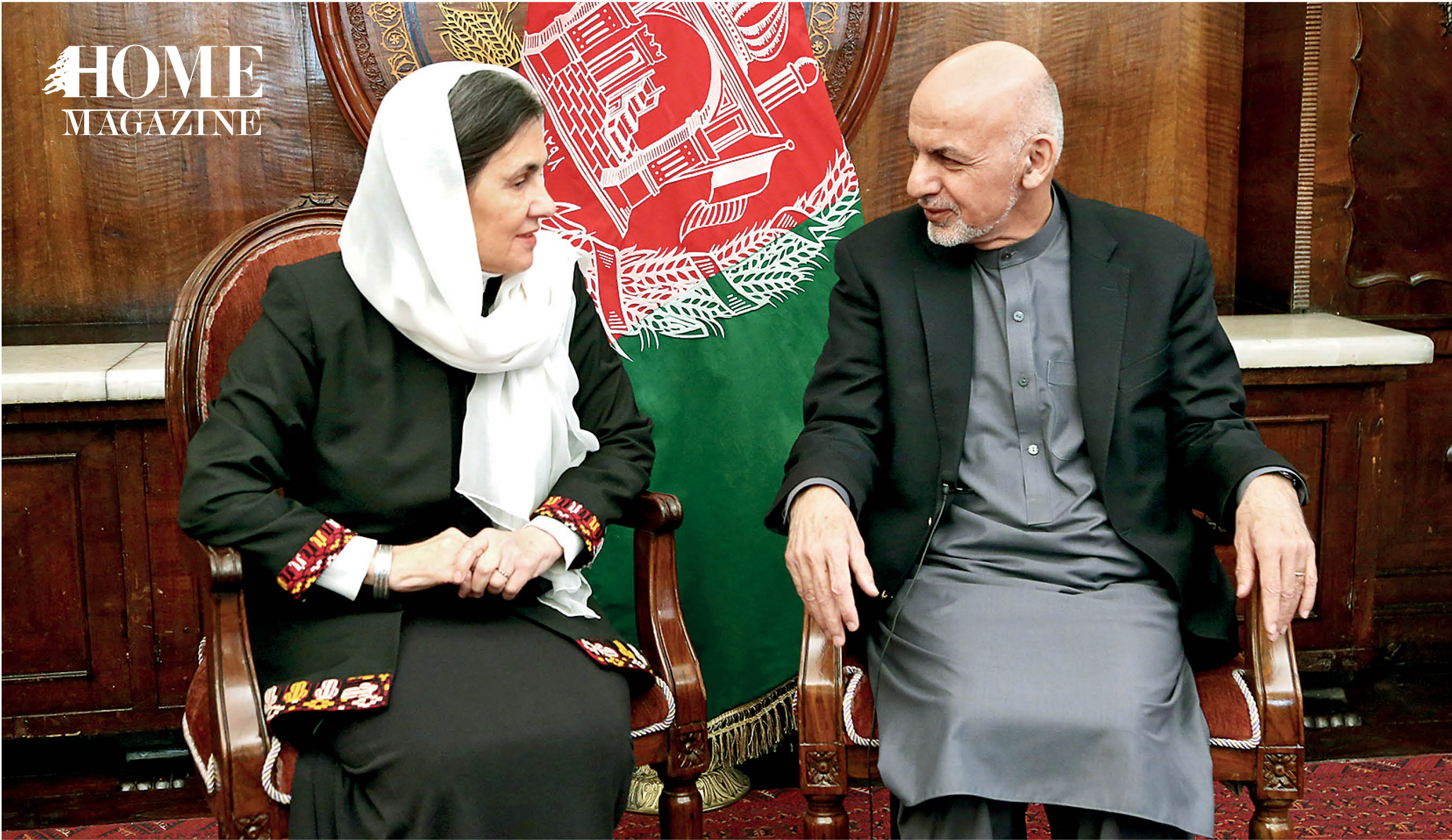 At the Palace with His Excellency the President – Photo by Office of the Spokesperson to the President
At the Palace with His Excellency the President – Photo by Office of the Spokesperson to the President
Both nations have been caught in “survival mode” due to war. Is this mode universal?
You bring up a very important point. Both nations have gone through civil war, and war is the most horrible state in which one can live. It destroys society, families, morals: people can no longer differentiate between what is right and what is wrong. When you are in survival mode, if you need to kill to survive, you kill. If you need to destroy the house of your neighbor, you do so. It is something both countries have had to endure. With war, people lose their moral compass. To change that war mentality is very hard. Personally, I believe hope can be found in the younger generation. They are not so fixed in their thinking: it is easier to change their behavior, their outlook, and their ability to move in the direction of peace.
Both countries have experienced waves of displaced people. Do you think that the concept of refugees will still exist in the future, or will we live in a borderless world?
If we look at history, it has only been 200-250 years since countries established borders, and the right to freedom of movement is listed in the Universal Declaration of Human Rights and should be respected. Consider Jamal al-Din al-Afghani, Rumi, Ibn Sina , all these famous travelers. If you read their stories, they travelled freely from city to city, from empire to empire. This free movement is now a thing of the past. We have reached a time in which, we are so compartmentalized that we can no longer move freely between nations.
Refugees become a problem with mass displacement, which is very difficult for host countries to deal with, as a huge increase in people overloads infrastructure and disrupts any system. In Lebanon, we have nearly 2 million Syrians in a country with a population of 4.5 million. When they need to go to school, we open school for Lebanese children in the morning, and non- Lebanese children in the afternoon, to accommodate everyone.
In contrast, look at Europe: they receive refugees not by the millions but by the thousands, yet they voice their concerns that these people are changing the character of their country. Some countries have systems of government that are so rigid there is no space for newcomers. I was once with my husband in Denmark, where he was teaching at a university, and I needed some medical attention— nothing important, just a blood test—and you can’t imagine how difficult it was to find someone who would assist me, because I was not part of the system. I had been there for three months and my case was a very minor one, yet it was almost impossible to access the healthcare system.
Imagine this same scenario in Lebanon. The culture here is different, we are hospitable by nature. Our system is so flexible that when people come, we say “ya ahla w sahla.” We welcome them.
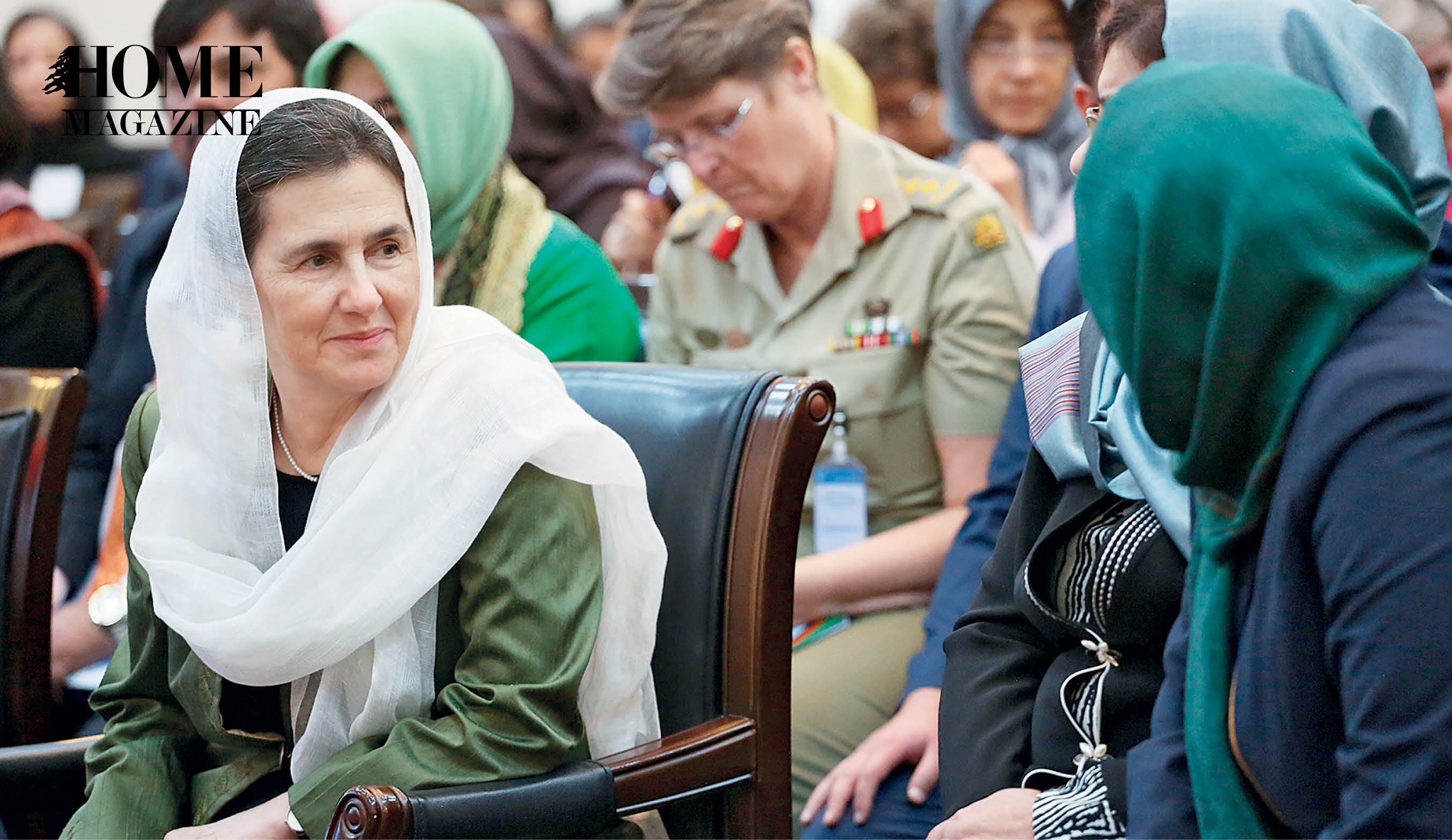 Attending a Conference on the Empowerment of Afghan Women – Photo by Office of the First Lady
Attending a Conference on the Empowerment of Afghan Women – Photo by Office of the First Lady
At the Crossroads of Love, Education and Destiny
How did President of Afghanistan Dr. Ashraf Ghani’s studies at AUB influence his character?
My husband was very lucky to have studied in Lebanon. Unlike many Afghans who experience a culture shock studying in America or Europe, Lebanon was similar enough for him to avoid such an experience, allowing him to focus on his education. He consequently shined in his studies, earning his bachelor’s degree in three years instead of four which allowed him to pursue two additional degrees in his last year. Later on, he was awarded his doctorate at Columbia University. His time at AUB was crucial for his intellectual development and forced him to think. He read a lot and wrote even more.
It is not every day that a Lebanese marries an Afghan and goes to Afghanistan. Do you believe in providence, a higher power, upper hand, destiny, God?
I definitely believe in the existence of God and destiny. I did not seek to marry an Afghan, it just happened, and he was the person I needed to marry. It might have been considered unusual, but for me he was a human being with whom I wanted to share my life. There were some differing opinions amongst family and friends; I remember a friend of mine expressing that she didn’t think my marriage would last because I married an Afghan. I replied: “I did not marry an Afghan, I married my husband.”
“Journalism makes you look outside yourself, giving perspective and an understanding of how different environments and societies function.”
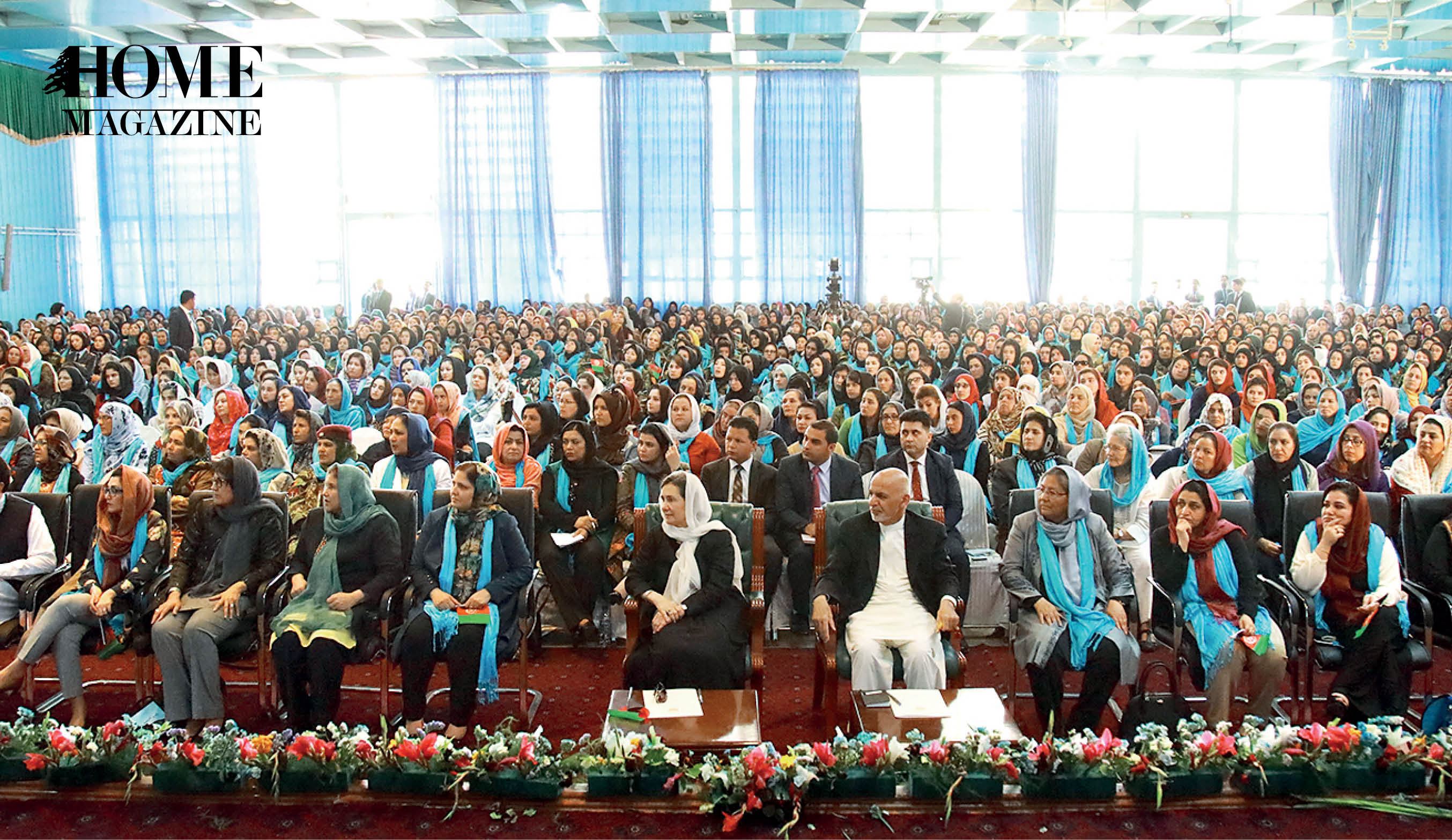 The Launching of the Afghan Women National Consensus for Peace, August 15th, 2018 – Photo by Office of the First Lady
The Launching of the Afghan Women National Consensus for Peace, August 15th, 2018 – Photo by Office of the First Lady
How did your degree in journalism and your training in the field help in your endeavors?
Journalism makes you look outside yourself, giving perspective and an understanding of how different environments and societies function. In my first year of economics at USJ, we had a teacher who encouraged us to read the newspapers’ business pages. Since then, I no longer read the political pages, which I find off-putting, and instead read the business pages, where the news is more tangible. After studying political science in France, I returned to Lebanon and worked for AFP for three years. At the time wire agencies were really very important: we were the ones who got the breaking news and had to look for facts and report them accurately. I was at AFP in 1970 when there were so many major events unfolding, from Gaddafi coming to power, to Nasser dying and Baathist coup d’état in Syria and Iraq. We were covering the entirety of the Middle East at the time. Standards were high: we were only allowed to make up to three mistakes without being fired. It was excellent and meticulous training for me.
“We currently have 67 women deputies, six women ministers in the past four years, 14 deputy ministers, and five ambassadors that are women, so women have been given a role here in Afghanistan and have also assumed it quite well.”
Empowering Women to Walk with Purpose
In your speech at the Lebanese National Energy’s Mind the Gap Conference in Lebanon, you mentioned that “In Afghanistan, women now walk with purpose,” and I love that notion. Do you believe your scholarly background has influenced your vision?
I believe in showing people that they are worthy of respect. When you are worthy of respect, you can walk with purpose. It does not mean overconfidence, but rather being approachable in your interactions. I believe this is extremely important. I remember the horrible bullying epidemic that existed—and still exists today—when my children were in school. I insisted on teaching my kids to feel confident and to stand strong in their opinions and to walk the path they felt was right. I draw a parallel with women: if a woman knows how to behave and behaves calmly but firmly, she will earn respect. In French we say “respecte-toi et on te respectera” (if you respect yourself, you will be respected in return). Some talk about human rights and women’s rights and I absolutely support them, but I believe that talking about respect is the best way for women to attain their rightful place in society. The creation of mutual respect benefits all. I respect you because you are a human being like me.
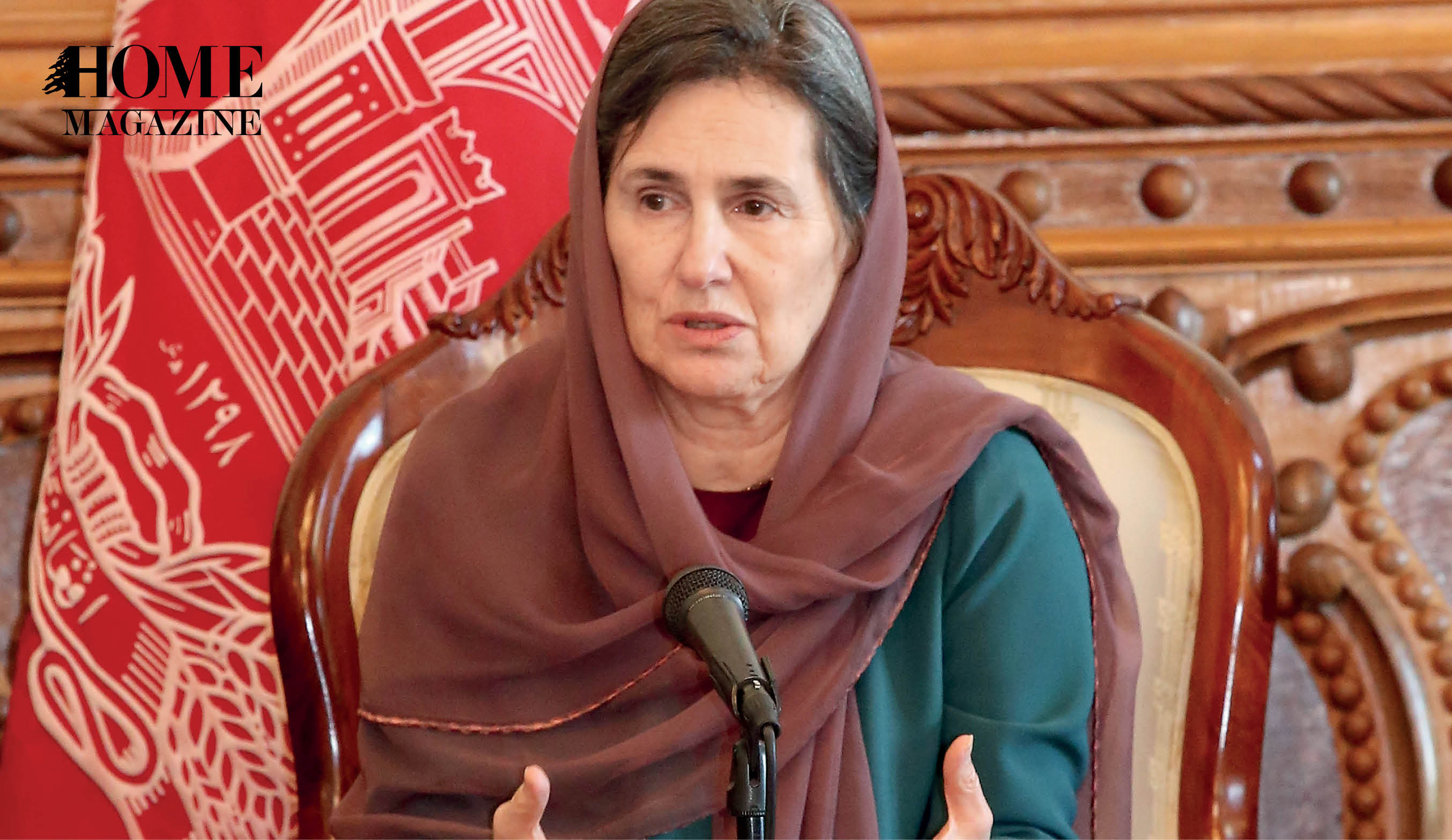 Photo by Office of the First Lady
Photo by Office of the First Lady
At the same Mind the Gap Conference, which featured panels on technology, culture, politics and education, you spoke about the role of women. What role can women play in these four fields today?
Women can play a vital role in all four sectors, but you must understand that women may have a different perspective because their concerns in life are different from those of men. They are usually the caregivers for children and families, so they may approach these fields from a different angle.
• Technology is a field in which women can thrive in Afghanistan because it allows them to work from HOME. For those who have family constraints and difficulty getting around, learning to code or navigating the internet allows them to work an excellent job from HOME. Tech is a field that women in Afghanistan are taking seriously. As I touched on in the conference, Lebanese women involved in the artificial intelligence field are thriving as well. Women absolutely have the capacity to contribute and it is up to them whether they will do so.
• Education is a no-brainer because we naturally start education at HOME. We educate our children from the moment they’re born, and those skills of nurturing and understanding children’s needs and trying to shape their behavior can be easily transferred into education. There is a natural opportunity for women to thrive as educators.
• Politics is a field I’m a little less fluent in. I have decided to stay away from politics in my work here in Afghanistan; I wanted to be the first lady to everyone, not only to those who voted for my husband. However, there are plenty of Afghan women making a difference. We currently have 67 women deputies, six women ministers in the past four years, 14 deputy ministers, and five ambassadors that are women, so women have been given a role here in Afghanistan and have also assumed it quite well. Unfortunately, there are less women involved in political parties, and I’m not sure why. We have made a great effort to have more female judges and prosecutors, and we are working to implement a code for the elimination of violence against women.
• Culture is a way of expressing how you feel. If saying something is not enough, you can express yourself through art, theatre, song and all sorts of cultural activities. It is a very important factor in the cohesion of a nation because it brings people together and creates shared memories and beliefs. Women can play a significant role in this process, and often do.
“I have decided to stay away from politics in my work here in Afghanistan; I wanted to be the first lady to everyone, not only to those who voted for my husband.”
I’d like to stress that culture is extremely important. It embodies the souls of people. The preamble of UNESCO’s constitution states: “Since wars begin in the minds of men, it is in the minds of men that the defenses of peace must be constructed.” This change can be achieved through culture. Culture is how we can change people’s mentality.

